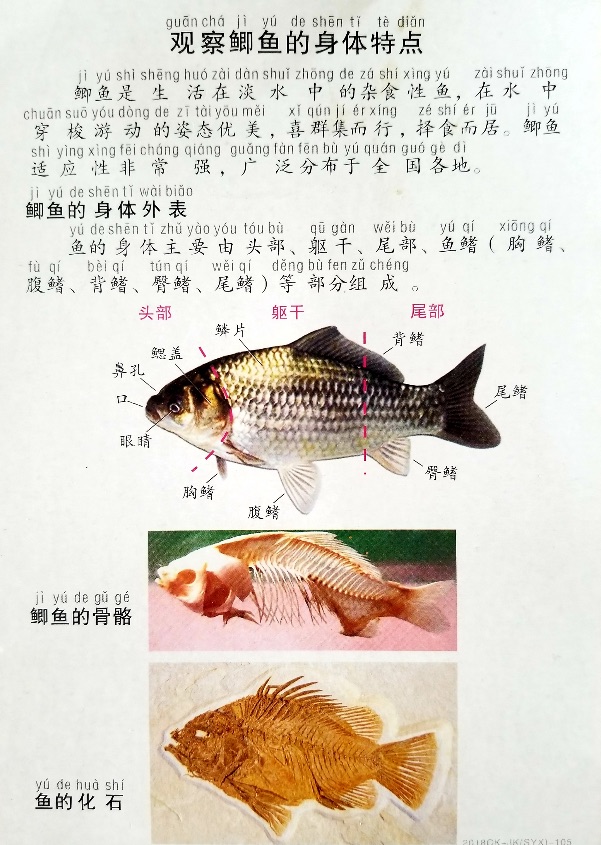Archive for Phonetics and phonology
Phonetic annotations as a welcome aid for learning how to read and write Sinographs
In several recent posts, we've been discussing the most efficient, least painful way to acquire facility with hanzi / kanji / hanja 漢字 ("Sinographs; Chinese characters"). Lord knows there are endless numbers of them and they are so intricately constructed that it is an arduous task to master the two thousand or so that are necessary for basic literacy.
It would be so much easier to learn the Sinographs if language pedagogues would provide phonetic annotations for each character. Better yet, the phonetic annotations should be divided into words with spaces between them according to the official orthographic rules.
Read the rest of this entry »
Of horse riding and Old Sinitic reconstructions
This post was prompted by the following comment to "The emergence of Germanic" (2/27/19):
…while riding horses _in battle_ is post-Bronze Age (and perhaps of questionable worth at any time), I think riding in general is older, and probably (assuming the usual dating of PIE) common Indo-European.
The domesticated horse, the chariot, and the wheel came to East Asia from the west, and so did horse riding:
Mair, Victor H. “The Horse in Late Prehistoric China: Wresting Culture and Control from the ‘Barbarians.’” In Marsha Levine, Colin Renfrew, and Katie Boyle, ed. Prehistoric steppe adaptation and the horse, McDonald Institute Monographs. Cambridge: McDonald Institute for Archaeological Research, 2003, pp. 163-187.
Read the rest of this entry »
H-b expressions
Yesterday, I was thinking of words to express "commotion", "(noisy) disturbance", etc. "Hustle bustle" and "hurly burly" quickly came to mind. Thinking analogically, "hubbub" also presented itself for consideration. Tangentially, "hullabaloo", "hoopla", "hoo-ha", and, through a process of inversion, "ballyhoo" and "brouhaha" also tagged along, but were less convincing as support for a thesis that was swiftly emerging. Namely, "h-b" words seem to be naturally configured for expressing an energetic state of affairs full of movement and din.
Read the rest of this entry »
Copp & Cobb
I have a colleague at Penn who teaches medieval Arabic cultural history; his name is Paul Cobb. He used to teach at the University of Chicago.
I have a friend at the University of Chicago who teaches medieval Chinese cultural history; his name is Paul Copp. He received his PhD from nearby Princeton, which starts with a "P".
Boy, do I ever get them confused!
I mentioned this to Diana Shuheng Zhang, and she replied as follows:
Read the rest of this entry »
Hol don
This morning while shaving, as I was listening to the radio around 7:30 a.m., I heard a medley of songs by three artists, all with the same title: "Hold on". But a funny thing happened in all three of these renditions: whenever the singer pronounced the title phrase, it always came out as "hol don", at least to my ear. But I don't think it was just my ear, since several times they prolonged the "hol" syllable and emphasized the "d" at the beginning of the "don" syllable.
Read the rest of this entry »
Penglin Wang’s response to David Marjanović’s comments
(The following is a guest post by Penglin Wang.)
Thanks to Professor Victor Mair’s organization of a series of informative postings, which share expertise in areas that I do not often get a chance to be a participant, I was happy to contribute material with which I am familiar. As I have a heavy teaching load of 13-15 hours per week plus other inevitable undertakings in the fall and winter quarters, I have no choice but to refrain myself from allocating time to extracurricular activities. By taking advantage of this relatively long weekend I went through the previous discussions and found my posting about the diffusion of the Germanic word for ‘hart’ in Tungusic and Mongolic ("Of reindeer and Old Sinitic reconstructions" [12/23/18]) commented on by David Marjanović (DM) and mentioned by some other esteemed colleagues. I wish to thank those of you who opined about my posting. In response to David Marjanović I have drafted the following notes.
Read the rest of this entry »
Sinitic for "iron" in Balto-Slavic
[This is a guest post by Chris Button]
There are a couple of brief suggestions in Mallory & Adams' Encyclopedia of Indo-European Culture (1997:314;379) that the Lithuanian word geležis and Old Church Slavonic word želežo for "iron", which following Derksen (2008:555) may be derived from Balto-Slavic *geleź-/*gelēź- (ź being the IPA palatal sibilant ʑ), could possibly have a Proto-Sino-Tibetan association.
Read the rest of this entry »
Sinographs for "tea"
It is common for Chinese to claim that their ancestors have been drinking tea for five thousand years, as with so many other aspects of their culture. I always had my doubts about that supposed hoary antiquity, and after many years of research, Erling Hoh and I wrote a book on the subject titled The True History of Tea (Thames & Hudson, 2009) in which we showed that tea-drinking did not become common in the East Asian Heartland until after the mid-8th century AD, when Lu Yu (733-804) wrote his groundbreaking Classic of Tea (ca. 760-762) describing and legitimizing the infusion.
Since people in the Chinese heartland were not regularly drinking Camellia sinensis qua tea before the mid-8th century, I long suspected that they did not have a Sinograph for tea (MSM chá) either. Rather, based on my reading of texts and inscriptions dating from the 7th c. AD and earlier, I hypothesized that the character now used for "tea", namely chá 茶, was a sort of rebranding (by removing one tiny horizontal stroke) of another character, tú 荼 ("bitter vegetable").
Read the rest of this entry »
Was it "getting" or "gay"?
Patrick Redford, "There's Nothing To Say About What Andrew Wiggins Said That's Not Conditional", Deadspin 1/9/2018:
Andrew Wiggins went off for 40 points on the Thunder last night in a lively game that featured 32-year-old interim coach Ryan Saunders getting his first win and Thunder guard Dennis Schröder getting ejected for shoving. Wiggins was asked about Schröder’s ejection after the game, and he either said, “He was getting—he was acting crazy,” or, “He was gay. He was acting crazy.” Those are obviously two very different quotes, and as much as I think he’s mumbling “getting,” the tape is ultimately inconclusive.
"Andrew Wiggins: Would never disrespect LGBTQIA community", ESPN 1/9/2018:
Hours after he called Oklahoma City Thunder guard Dennis Schroder "gay," Minnesota Timberwolves forward Andrew Wiggins sought to clarify his remark, saying early Wednesday morning that he wouldn't use "any term to disrespect" the LGBT community.
Id like to clarify what I said tonight during my post game media session. I said: “I don’t know what’s wrong with him he was just getting… acting crazy for no reason”.
— andrew wiggins (@22wiggins) January 9, 2019
I have the utmost love and respect for the LGBTQIA community and I would never use any term to disrespect them in anyway.
— andrew wiggins (@22wiggins) January 9, 2019
Read the rest of this entry »
Of reindeer and Old Sinitic reconstructions
This is a piece that I've been meaning to write for a long time, but never found the opportunity. Now, inspired by the season and about to embark on extended holiday travel, I'm determined not to put it off for yet another year.
The genesis of my ruminations on this topic are buried in decades-old tentative efforts to identify the fabulous creature known in Chinese myth as the qilin (Hanyu Pinyin), also spelled as ch'i2-lin2 (Wade-Giles Romanization) and kirin in Japanese, which the whole world knows as the name of a famous beer (fanciful, stylized depictions of the kirin are to be found on bottles and cans of the beer).
The qilin is usually referred to in English as a kind of unicorn, but I knew that couldn't be right, since no account of the qilin from antiquity describes it as having only one horn. The Chinese xièzhì 獬豸 ("goat of justice") does have a single, long, pointed horn, but that is another matter, for which see "Lamb of Goodness, Goat of Justice" (pp. 86-93) in Victor H. Mair, "Religious Formations and Intercultural Contacts in Early China," in Volkhard Krech and Marion Steinicke, ed., Dynamics in the History of Religions between Asia and Europe: Encounters, Notions, and Comparative Perspectives (Dynamics in the History of Religion, 1 [Ruhr-Universität Bochum]) (Leiden: Brill, 2011), pp. 85-110 (available on Google Books). Since customs pertaining to the goat of justice, as with the reindeer, existed in cultures spread across northern Eurasia, I suspect that an extra-Sinitic loanword may also be lurking behind xièzhì 獬豸.
Read the rest of this entry »
Of jackal and hide and Old Sinitic reconstructions
[The first page of this post is a guest contribution by Chris Button.]
I've been thinking a little about the word represented by chái 豺* which I would normally reconstruct as *dzrəɣ (Zhengzhang *zrɯ) ignoring any type a/b distinctions. However, it occurred to me that a reconstruction of *dzrəl (for which Zhengzhang would presumably have *zrɯl) would give the same Middle Chinese reflex (I'm not citing Baxter/Sagart since they don't support lateral codas presumably for reasons of symmetry). I'm not sure if outside of its phonetic speller cái 才 there is any reason to go with -ɣ rather than -l in coda position for 豺. However, if we go with a lateral coda as *dzrəl, it looks suspiciously similar to Old Iranian šagāl from Sanskrit śṛgāla (perhaps even more so if we fricativize the Old Iranian /g/ to /ɣ/ intervocalically as in modern Persian).
[*VHM: This is always a challenging word for translators. "jackal" and "dhole" are two possibilities.]
Read the rest of this entry »

